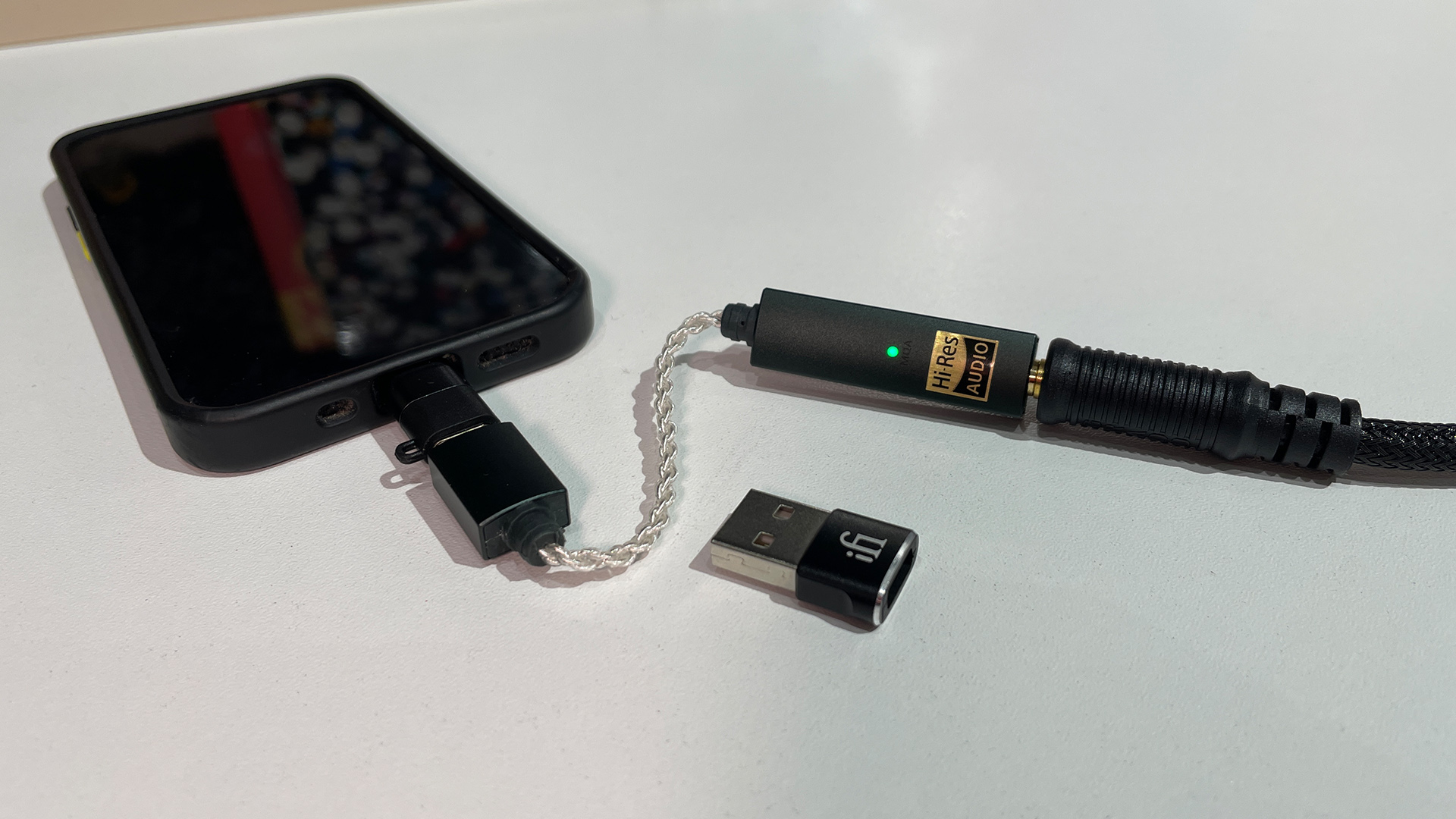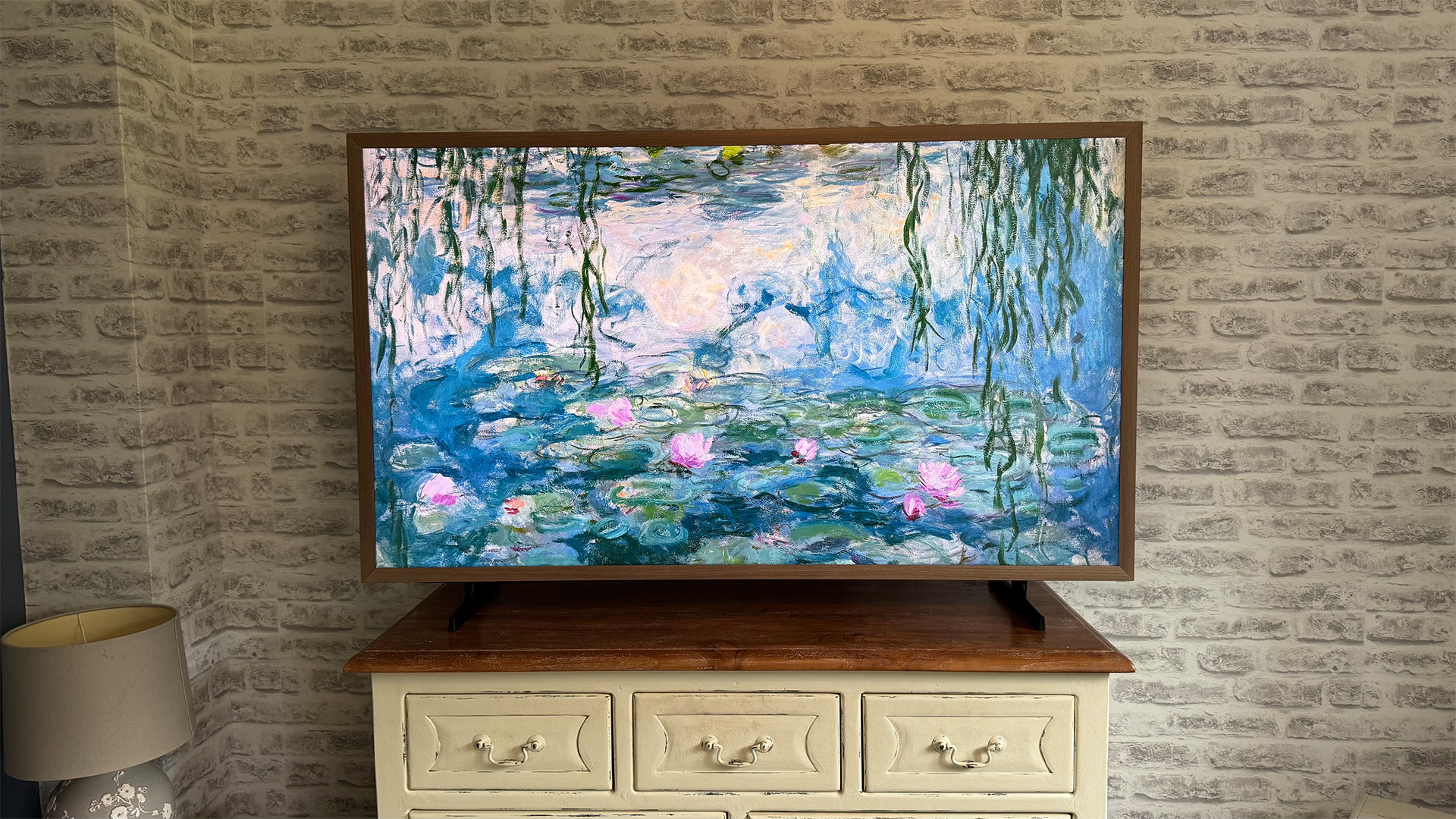Forget AirPods, this is the hi-fi accessory every student should be taking to university
If you're a student itching to start your hi-fi journey, I’d strongly recommend considering a portable DAC

One of the most common questions manufacturers, audiophiles and – heck – the team at What Hi-Fi? ask ourselves is, how do we get more young people into hi-fi?
This is particularly true during back to school season when eager students take advantage of the wealth of discounts available to them and invest in new headphones or speakers to add a soundtrack to their studies and parties.
Traditionally you'd expect this to apply to hi-fi as well. But that's not necessarily the case anymore, as the way most people listen to music has fundamentally changed from the days I was a student – mostly in ways that make it much harder to draw younger listeners away from wireless convenience to 'proper' hi-fi.
And there’s a good reason for that. In today’s world, most of us use a smartphone as our primary music player, usually with a streaming service. Phones don’t normally have headphone jacks anymore, so it makes sense that you’d use these primarily with wireless speakers or headphones.
While there’s no replacing the experience you get with top-end hardware and a cabled set, even we at What Hi-Fi? recommend this type of set-up in some instances. Mainly because, unlike the early years when the word 'wireless' was interchangeable with 'lossy' and 'poor quality' audio, there are now some really good quality streaming services and wireless hardware options available.
For students, the ongoing popularity and prevalence of Apple hardware on campuses makes particular sense. With Apple offering healthy student discounts,
several five-star headphones and earbuds, which perfectly complement iPhone / MacBook sources and the Apple Music streaming service, there is a wonderful simplicity to the company’s ecosystem. That’s why you’ll see the AirPods and HomePod appearing prominently in our best wireless headphones and best wireless speakers guides.
Even if you’re not committed to Apple there are an equal number of fantastic alternatives. You’ll find a number of good sounding, affordable options in our best Bluetooth speaker guide. On top of that, Sony in particular has a number of incredible value wireless headphones and earbuds, many of which cost less than a hundred bucks and impressed our reviewers enough to earn five star ratings when we tested them. The Sony WF-C700N and Sony WH-CH720N are particularly good examples of this.
Get the What Hi-Fi? Newsletter
The latest hi-fi, home cinema and tech news, reviews, buying advice and deals, direct to your inbox.
So I get why many students stop their audio journey there, especially as if you haven’t experienced anything else you won’t know what you are missing. This is especially true right now given how few dorm rooms and student halls have access to 'proper hi-fi' which makes communicating the benefits tricky.
Back in the year [redacted], when I was a student, the world was completely different. Bluetooth speakers weren’t really a mainstream thing and portable music players that didn’t make phone calls were a staple sight in most halls of residence. Forget Android vs iPhone, my battleground was Zune vs iPod.
In this world, while a basic, usually terrible sounding, iPod dock was the sound system of choice for many, there was still proper hi-fi around. A few of my friends even had actual ’80s and ’90s boomboxes or separate racks they’d inherited from their parents. I myself rocked a dedicated Zune HD player and solid pair of over-ear AKG headphones during my post-grad years. So there was always some 'proper' hi-fi around for me, even back then.
Without that experience, I understand getting into hi-fi can be intimidating. After all, shopping for a turntable, let alone separates when you’re not familiar with system matching and confident enough to go in store to try before you buy, is a daunting process. So knowing where to start is hard.
To help with that I have one simple recommendation for any student music fan looking to get into hi-fi – start small and consider trying a portable DAC paired with open-back wired headphones.
Wondering what a DAC is? A DAC (digital to analogue converter) is a key bit of hardware that takes the digital audio signal from your phone, laptop, or system and turns it into the analogue audio you can hear. Though it’s only one part of the mix that creates truly brilliant audio, the reason I recommend it is that most of the phones and laptops don’t have great DACs.
So adding a better, separate portable DAC to your set-up is a quick and easy upgrade that can radically improve your listening experience without taking up lots of space or requiring oodles of technical knowledge. Once you’ve connected the unit to your phone or laptop via USB, all you have to do is plug in your headphones and you’ll be treated to a plethora of sonic improvements, even if you’re just streaming from Apple Music or Tidal. We’ve detailed why students should go for Tidal over Spotify, at least right now, in a separate feature. [Spoiler] Spotify is not as high quality and costs more.
This is particularly true right now, where there are a number of fantastic options that won’t break the bank. I personally use a Chord Mojo 2, and that is a great option for those that can afford it – though I get that the cost of one, plus a compatible pair of headphones is a lot for most students.
But below that there’s the iFi Go Link, which you can pick up for £69 in the UK or $59 in the US. Paired with the great value Rode NTH-100 the unit impressed our staff writer Harry McKerrell, who had never used a DAC before, enough for him to detail quite how revolutionary the experience was in a feature last year.
Our iFi Go Link review’s conclusion says it all:
“The iFi Go Link feels like the perfect device for enhancing your headphones on the move and on a budget, living up to its brief of providing discernible sonic enhancements in a portable package without forcing you to fork out a fortune for the pleasure. Choose your apt analogy – Luton Town FC, Bruce Lee, Peter Crouch – the iFi Go Link joins the pantheon of performers punching well above their weight.”
As an added layer of allure, that combo is significantly less than a pair of AirPods Pro 2, let alone AirPods Max. Which is why I thoroughly recommend any student keen to elevate their audio beyond basic wireless hardware start with a DAC and reliable pair of wired headphones – trust me, you won’t be disappointed.
MORE:
These are the best wired headphones we’ve tested
We detail the best over-ear headphones money can buy
Our picks of the best hi-fi systems

Alastair is What Hi-Fi?’s editor in chief. He has well over a decade’s experience as a journalist working in both B2C and B2B press. During this time he’s covered everything from the launch of the first Amazon Echo to government cyber security policy. Prior to joining What Hi-Fi? he served as Trusted Reviews’ editor-in-chief. Outside of tech, he has a Masters from King’s College London in Ethics and the Philosophy of Religion, is an enthusiastic, but untalented, guitar player and runs a webcomic in his spare time.
